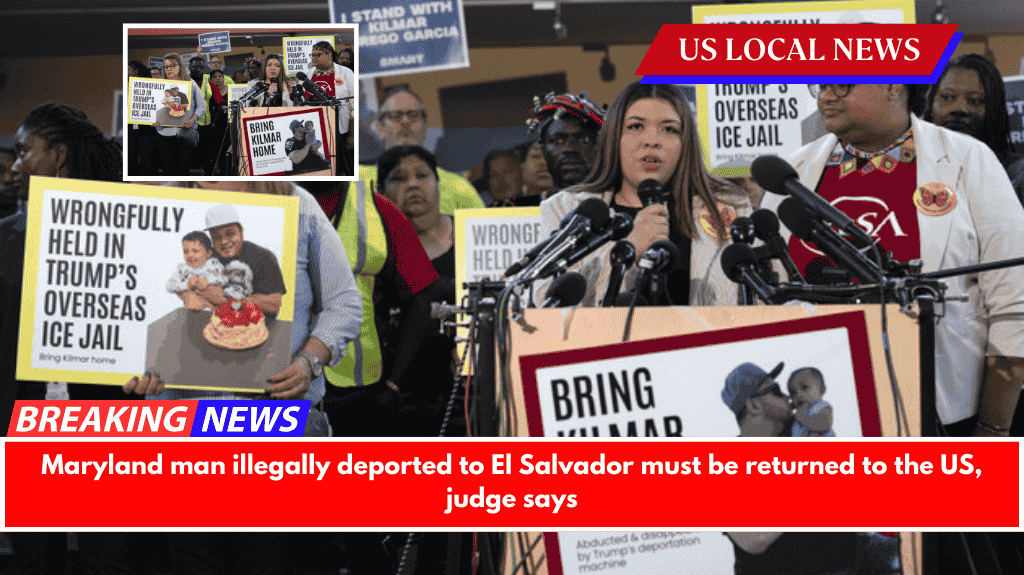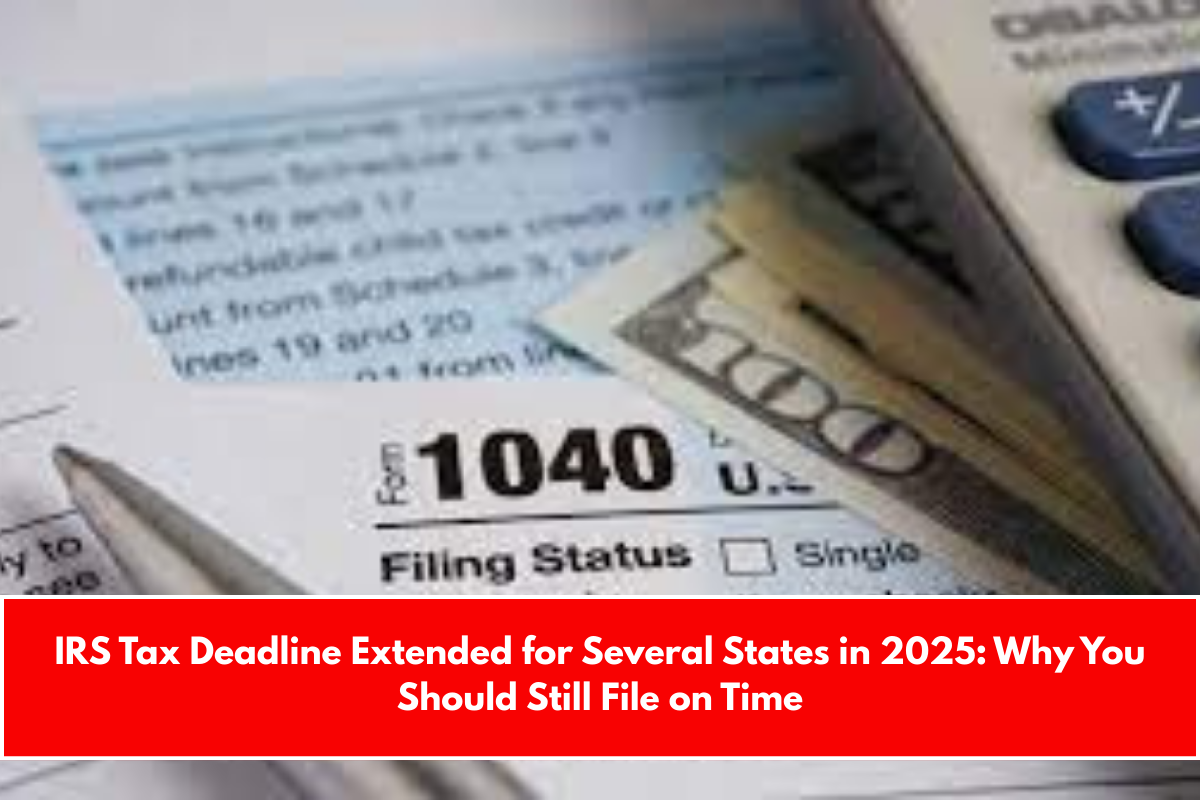A federal judge has ordered the Trump administration to return a Maryland man to the United States by midnight Monday after ruling that he was illegally deported to his home country of El Salvador despite an immigration court order that he not be sent there.
Following an extraordinary hearing in which the government admitted that Kilmar Abrego Garcia had been deported in violation of federal law, U.S. District Judge Paula Xinis issued an order requiring his return on Friday.
“This was an illegal act,” Xinis informed a Justice Department lawyer. “Congress said you can not do it, and you did it anyway.”
In response to Xinis’ ruling, press secretary Karoline Leavitt stated that the judge should “contact” the Salvadoran president, “because we are unaware of the judge having jurisdiction or authority over the country of El Salvador.”
Leavitt earlier this week described Abrego Garcia as a member of the “brutal and vicious” MS-13 gang and stated that he “will not be returning to our country.”
However, Xinis, an Obama appointee, stated on Friday that the government had shown her no evidence to support the claims of gang membership.
“That is just chatter, in my opinion. “I have not been given any evidence,” the judge stated. “In a court of law, when someone is accused of membership in such a violent and predatory organization, it comes in the form of an indictment, a complaint, a criminal proceeding that has robust process so we can assess the facts.”
The Justice Department immediately appealed Xinis’ decision to Richmond, Virginia’s 4th Circuit Court of Appeals.
Scores of Abrego Garcia supporters demonstrated outside the Greenbelt, Maryland, courthouse on Friday and sat in the courtroom during the afternoon hearing. They erupted in applause as the judge read her order aloud.
Abrego Garcia’s case quickly gained national attention after the Justice Department admitted that the Maryland resident had been mistakenly sent to El Salvador, despite a 2019 immigration judge’s determination that he faced a legitimate fear of persecution in his native country.
That order was still in effect when the administration rushed Abrego Garcia onto a plane to El Salvador on March 15, as part of a series of contentious flights transporting detainees to a Salvadoran anti-terrorism prison notorious for its harsh conditions.
However, the Trump administration argued that the courts had little power to seek Abrego Garcia’s return, implying that the move was purely diplomatic between the executive branch and El Salvador’s government.
Abrego Garcia’s case was cited separately by U.S. District Judge James Boasberg this week. Boasberg is considering holding administration officials in contempt for defying his order to turn planes around on March 15, amid legal challenges to Trump’s attempt to expedite deportations by invoking rarely used wartime powers.
A concession by the administration that it can bring Abrego Garcia back could be used in other legal cases to demonstrate that the US has the authority to return the more than 130 Venezuelans deported to El Salvador last month.
In a rare courtroom exchange at Friday’s hearing, the lawyer representing the government in the case expressed frustration with the administration’s approach and refusal to respond to his questions.
“I am also frustrated that I have no answers for you on a lot of these questions,” said Erez Reuveni, an assistant director in the Justice Department’s Office of Immigration Litigation. “The government made a choice here to produce no evidence.”
One measure of the case’s hastiness and chaos: When Xinis requested to see the warrant used to arrest Abrego Garcia in 2019, Reuveni declined. “I do not have the order. “It is not in the record,” he stated.
Reuveni did argue that Xinis lacks jurisdiction over the case because it should be pursued in an immigration court, and he claimed that evidence of US control over the Salvadoran inmates was insufficient.
However, Abrego Garcia’s lawyer cited statements by Secretary of State Marco Rubio indicating that the United States agreed to pay $6 million to the Central American country to hold a group of prisoners for a year.
Xinis stated that, in the absence of contrary evidence from the US, there appeared to be a deal to keep the men, which likely gave the US significant control.
“You have an agreement with this facility where you are paying the money to perform a certain service,” according to the judge. “It stands to reason that you can go to the payee and say, ‘We want the person back.'”
At another point, Reuveni claimed he asked why the US could not seek Abrego Garcia’s return and was turned down.
“When this case arrived on my desk, I asked my clients that exact question. “I have yet to receive a satisfactory answer,” he stated.
Shortly before the judge’s ruling, the visibly frustrated attorney pleaded with Xinis for 24 hours to persuade US officials to seek Abrego Garcia’s return without court intervention.
“I would ask the court to give us, the defendants, one more chance to do this,” Reuveni told the reporter. “That is my recommendation to my client, but so far that has not happened.”
Lawyers for both sides, as well as the judge, acknowledged that the United States government has previously returned people to the country after they were mistakenly deported under court orders. Xinis stated that it was unclear whether any of those cases involved someone imprisoned overseas.
Abrego Garcia’s lawyer, Simon Sandoval-Moshenberg, told reporters after the hearing that Homeland Security Secretary Kristi Noem’s recent trip to the Salvadoran prison undermined the administration’s claim that there is nothing they can do to bring Abrego Garcia back.
“Maybe they could have made that argument prior to Wednesday of last week, but as soon as they put Kristi Noem within the walls of that prison, they really kneecapped their argument to say that they can not get someone out of that prison because they got Kristi Noem out of that prison,” says Sandoval-Moshenberg.
Abrego Garcia’s status as a potential MS-13 gang member will undoubtedly be a focal point of the ongoing dispute. In 2019, a judge agreed that the information provided to police by an informant was convincing enough to label him a likely gang member and justify his continued detention as a threat to the community.
Despite arriving in the United States in 2012, Abrego Garcia did not seek asylum until his detention in 2019, claiming that a local gang in El Salvador had been extorting his mother’s pupusa business and attempting to force him to join.
Though a judge denied his asylum claim, noting that he filed it far too late, she agreed to block his removal to El Salvador due to his credible fear of being persecuted there. Abrego Garcia was released from detention and now lives in Maryland with his US citizen wife and child.
















